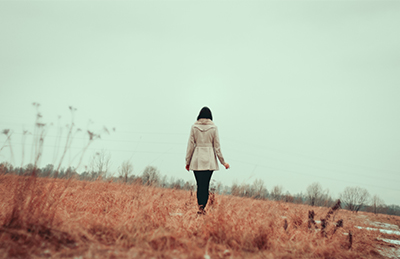Morgan’s Story: Abuse doesn’t always look like what we think it will

Morgan Dax
We’re often taught, through media or even school, that domestic violence is all physical. But that’s often not the case. The lack of physical bruises should never be a sign that all is fine. While abuse can most definitely be physical, it can also be emotional, psychological, mental, or financial. Many times, it also starts off slowly, with the abuser attempting to control his victim in numerous ways.
Morgan’s story highlights how it’s possible to be in an abusive relationship without realizing, as well as the difficulty in leaving an abuser.

I spent 4.5 years trapped in an abusive relationship with an alcoholic drug-abuser. I had tried drugs before meeting him, but he got me doing dangerous amounts, and I also wound up working in the adult entertainment industry because of his "encouragement." Ironically, that's also what helped me escape him.
I never realized I was in an abusive relationship, because traditionally, information about abusers is always the worst of it. The overt physical violence of "beating" women. And he never beat me. But that's what media always shows to raise awareness about domestic violence. Hence, I didn't recognize it for what it was. What media fails to educate the public about is that psychological abuse can be just as much, if not more, insidious. He never raised a fist to me. But he belittled me. He lost his temper a lot. He made me feel guilty and unworthy. He made me feel stupid. He threw things at me (that never made contact, and which he claimed never would... he would never do something like that to me... how dare I even suggest such a thing!) He isolated me, cut me off from friends and family, living on a hundred-acre farm, just the two of us. He drove his car, speeding towards me, while I stood in our long, straight, driveway, trying to prevent him from driving drunk, yet again.
I threw myself into the ditch to prevent him from hitting me. But he would NEVER hit me. How could I even think such a thing? He restrained me when I wanted to get away, even for a few minutes to catch my breath, or cry alone. I belonged to him. I thought it was romantic that he wanted to keep me to himself, and take care of me under his roof.
It wasn't until a full year AFTER I'd left him for good that it dawned on me just how much damage he had done to my psyche. It's been 10 years since I escaped him. I'm not sure I'll ever fully recover. I suffered PTSD for years, and despite years of therapy, didn't realize that either. Education about what the various forms of abuse can look like, and how it can affect you, is extremely lacking.
More education is needed to help get information out to the public. The situation is dire for many victims. I was one of the lucky ones. I never had children with him. I had an income that afforded me the privilege of feeling JUST secure enough to leave him. And it still took me leaving 5 times to leave for good. We need better education.
In my own attempt to raise awareness, I've written a novel about my experiences, titled, "How to Grow a Stripper." It will be released September of this year. It highlights how easy it is for vulnerable people to get sucked into an abusive relationship. How easy it is for them to blame themselves, and make constant justifications. And most importantly, how traditional gender roles and society contribute to these narratives victims continue to feed themselves, keeping them trapped, and alone.
My hope, is that in the form of entertainment, it will reach more people who need to hear it.
- Morgan Dax*
*name changed for privacy reasons
